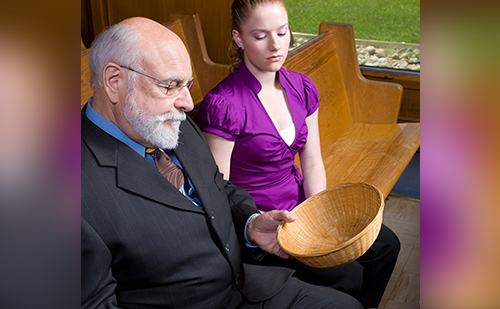I can’t tell you how many pastors have said to me, “I don’t want to know what my members give. That’s between them and God.”
But the reality is, if you’re the lead pastor, what your members give IS your business.
When I was a church planter, my trainer asked us, “What is the #1 way you can tell if someone is committed to your church?” We responded with answers all over the map … attendance, serving, etc. The trainer’s response: “Money.”
Then he asked what the second most reliable way you can tell if someone’s committed to the church. Again “The money.”
And the third most reliable is the same.
It turns out, after nearly 40 years in the pulpit, that I can tell you he’s 100% correct. Sacrificial giving is the most reliable way to tell if someone is committed to the church’s mission and vision.
I regularly hear, “But that’s between them and God” and “I’m afraid I’d treat them different.” First, sacrificial giving isn’t a biblical option – Jesus didn’t ask for 10 percent … he demanded it all.
Second, if a pastor doesn’t treat their big givers differently than those who just tip, then they’re very, very foolish. It’s the church’s big givers who keep the lights on, pay your salary, and step up to help reroof the building when the shingles fail. That doesn’t mean they get to dictate anything … but it may mean the pastor gives a little more time to them. Jesus did not treat anyone “equally,” not even within his twelve. He had his three (Peter, James, John) and he had his one (Peter). Those who treat everyone alike often see their most committed walking out the door never to return.
I have only once been denied access to all giving records – and I wouldn’t allow that today. A pastor without access to giving records is like a CEO who is denied access to revenue. It makes no sense.
Probably the best treatise on the subject is Clif Christopher’s Not Your Parent’s Offering Plate – if the above isn’t convincing 🙂


